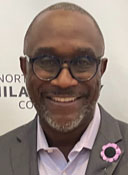Is Your CDMO Relevant? How To Find Out

By Louis Garguilo, Chief Editor, Outsourced Pharma

Ron Lewis, Sr. Director, Technical & CMC Operations at MEI Pharma, harkens back two decades to outsourcing gems he’s mined over his career.
It’s a career that spans research to manufacturing, CROs and CDMOs to Big Pharma and smaller sponsors, and those unearthed gems can adorn your outsourcing strategies today.
Are You Relevant?

When considering new CDMOs, or reviewing CDMOs you are in relationships with, Lewis says due diligence and experience should inform you of whether “the human resources at the service providers are, or remain, innovative.”
Sponsors need to learn whether there is “fresh thinking among the chemists, analysts, and all those who will be assigned to your programs.”
“Have they been in the industry for years, do they seem stale, if I can say it that way, and are they still relevant,” is how Lewis expresses it.
Or, on the other hand, can you access if the CDMO does in fact strive to be innovative, whether by incorporating continuous flow chemistry or other technologies into their work stream, or other means.
Questions Lewis wants answered include the following.
- Does the CDMO have strategies to ensure manufacturing suites are up to date and well maintained?
- Is, for example, capital and other resources deployed to analytical teams so they possess “the latest and greatest” analytical equipment and techniques?
- Is the CDMO able to move past their more legacy or antiquated equipment and “substantially maintain relevance to support today’s projects”?
Overall, for ongoing relationships, Lewis says “really the biggest understanding from due diligence is if they are staying relevant or not.”
Lewis and team scrutinize whether CDMO personnel are challenging themselves to be innovative, staying up with the current developments and automation, and whether they are “current and active, or just there day after day.”
Professionals at your CDMO, he continues, should be “right on top of changes in the industry,” and strive to tap into advancements that work with both their and your systems.
When CDMOs review an RFP or other work proposal, can they come to the table and say, “Hey, we have this idea – or technology or system – we think might be a good fit for you”?
If they can, first is there the real opportunity to try it out, and second, is there the capacity to implement at larger scales?
“Today, to be a top CDMO, they need to be innovative in how they approach programs and relationships,” Lewis says.
And they need to demonstrate such agilities before Lewis will take on significant new relationships.
First Lessons
Lewis draws from early experiences at Pfizer, La Jolla, where he was a medicinal chemist, but he says those learnings actually originate to when he worked at a contract research organization (Discover Partners International, now Biofocus DPI, a service division of Galapagos) serving Pfizer.
As a customer, Pfizer opened his eyes to the “full global reach of our industry.”
“We were doing combinatorial libraries and synthesis for companies like Pfizer, Merck and Johnson and Johnson. Some of that work was also sourced in China and India. We were working in parallel to make compounds for their general screening.”
That coordination and the need for oversight was instructive. Eventually, Lewis left the service provider for Pfizer, to work as a “therapeutic area liaison.”
“I now worked with medicinal chemistry teams doing molecule design, and then submitted those libraries to our CMO’s in China,” explains Lewis. “They manufactured the library and sent those compounds back to us for screening internally.”
Lewis started working closely with the CDMOs to ensure libraries were completed, and information transferred back to Pfizer.
From that experience, he says he learned “you must have an open dialogue to help them understand the value and importance of the molecules being synthesized. Moreover, open dialogue helps you understand how the service provider thinks, and they understand how you, as the sponsor, thinks.”
“They should not feel as though they are just a pair of hands. We definitely leveraged their intellectual input back then, and took full advantage of their capabilities. I think that's what helped programs move quickly.”
Today’s Practice
Today, as a leader in technical and CMC operations, his responsibilities start with identifying and selecting CDMOs “for everything from preclinical studies and synthesis, to drug substance and product manufacturing, and additional development work that goes into supporting phase one or phase two studies.”
In later stages, the focus moves to whether CDMOs have the right resources and capabilities to bring programs forward to phase three, and eventual commercialization.
“My role is to help with that selection process, project management, and vendor management once we've established a relationship,” says Lewis.
His advice to those in similar roles is to stay in consistent check-in mode to judge whether projects move along in a timely fashion. If they don’t, take it up with the CDMOs expeditiously.
He describes the role as a “navigation along with the CDMO’s project managers, and aligning document approvals so both teams are in the same boat.”
His primary concern today?
“COVID changed the landscape and many relationships, particularly because of the significant amount of turnover at the CDMOs,” he responds.
“Workforces at the CDMOs have been impacted, and dealing with those personnel challenges impact sponsors’ programs. With a significant amount of changeover on a project team, the learning curve goes up again at the CDMO. You have to reeducate and get them up to speed to get the program running back to where it was. I see my real functional role within the operations component is assisting with these challenges.
On the tech ops side, Lewis says, he’s most focused on aiding the SMEs for drug substance and drug product move their programs through thier CDMOs quickly and efficiently.
“I see that everybody's aligned technically – on both sides – and deal with risk mitigation, deviations, and any obstacle that the teams face.
“I'm really that liaison between our internal teams and SME’s and the CDMO’s project managers and SME’s.”
And, we’ll add, he always leads the “CDMO relevancy department.”
---------------
We’ll hear more from Ron Lewis, Sr. Director, Technical & CMC Operations at MEI Pharma, in coming weeks.
